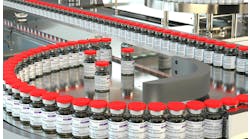HHS Awards $1.6 Billion to Address the Addiction and Overdose Crises
According to a Sept. 23 press release, the U.S. Department of Health and Human Services (HHS), through the Substance Abuse and Mental Health Services Administration (SAMHSA) and the Health Resources and Services Administration (HRSA), is awarding more than $1.6 billion in investments for communities to address the addiction and overdose crises.
The release states that “The investments made through SAMHSA’s State Opioid Response (SOR) and Tribal Opioid Response (TOR) grant programs and HRSA’s rural communities opioid response programs will help communities looking to leverage every tool at their disposal—from prevention to harm reduction to treatment and recovery supports for people in need. In President Biden’s first State of the Union, he named addressing the opioid crisis and overdose epidemic a top priority of his Administration, and earlier this year released his National Drug Control Strategy to expand access to treatment for addiction and overdose, and to disrupt drug trafficking.”
Moreover, “The programs reflect President Biden’s priorities in the Strategy and HHS’ commitment to addressing opioid and stimulant misuse throughout the nation, including in Tribal communities. According to Centers for Disease Control and Prevention (CDC) data, more than 107,000 Americans died from drug overdoses in 2021, an increase of more than 15 percent from 2020.”
The investments include four types of funding for states and communities including:
- SAMHSA’s SOR grant program: SOR provides formula funding to states and territories for growing access to FDA-approved medications for the treatment of Opioid Use Disorder (OUD), and for supporting prevention, harm reduction, treatment, and recovery support services for OUD and other concurrent substance use disorders (SUD).
- SAMHSA’s TOR grant program: TOR addresses the overdose crisis in Tribal communities by increasing access to FDA-approved medications for the treatment of opioid misuse, and supporting prevention, harm reduction, treatment, and recovery support services for opioid and stimulant misuse and co-occurring mental and substance use conditions.
- SOR/TOR technical assistance for education and training to states: A national network of consultants provide free educational resources and training to states, communities, and individuals in prevention, harm reduction, treatment, and recovery services for OUDs and SUDs.
- HRSA’s Rural Communities Opioid Response Program: HHS’ HRSA has announced investments to expand treatment and prevention services for substance use, included medications for OUD, in rural communities nationwide as part of its Rural Communities Opioid Response Program.
The release adds that “HRSA’s announcement highlights funding through the following three programs:
- The Rural Communities Opioid Response Program – Medication Assisted Treatment Access awarded over $10 million to establish new medication assisted treatment access points for substance use disorder, including OUD, in rural communities. The program will reduce barriers to evidence-based treatment in underserved rural areas.
- The Rural Communities Opioid Response Program – Implementation awarded $65 million to strengthen and expand OUD prevention, treatment, and recovery services in rural communities through workforce development and training, behavioral health care integration, and support services.
- The Rural Communities Opioid Response Program – Behavioral Health Care Support awarded $29 million to improve the quality and sustainability of behavioral health care services in rural communities, including through evidence-based, trauma-informed treatment for substance use. The program works to improve rural residents’ access to quality, integrated behavioral health care services.”
HHS Secretary Xavier Becerra was quoted in the release saying that “Providing access to evidence-based, person-centered care is a central part of HHS’ strategy for ending the overdose crisis. I have heard many stories of despair from individuals battling addiction and from families who have lost loved ones to overdose. Through these grants, we are investing in evidence-based supports and services for individuals, families, and communities on the road to recovery. Through these grants, we are investing in hope.”


